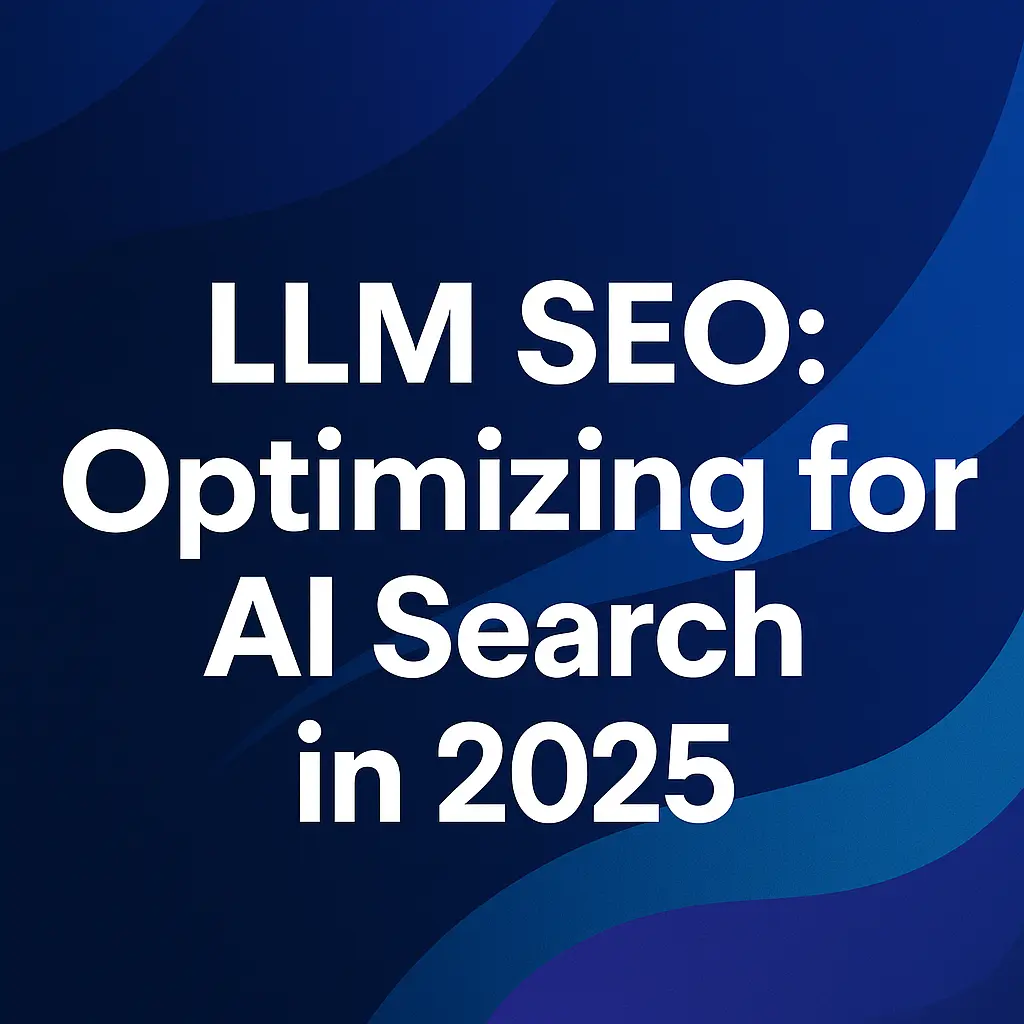Not long ago, SEO felt predictable: write a strong article, earn a few backlinks, and hope to climb Google’s first page. That game is changing. Instead of scrolling through ten blue links, more people are simply asking ChatGPT, Gemini, or Perplexity for answers. These tools don’t just point to websites—they summarize the web in a single response. And if your content isn’t chosen as part of that answer, you’re invisible.
This is where LLM optimization—sometimes called LLM SEO, GEO (Generative Engine Optimization), or AEO (Answer Engine Optimization)—comes in. It’s about learning how to present your knowledge in ways that large language models (LLMs) trust, use, and cite.
Think of it as writing with two audiences in mind: the human reader who wants clarity and the machine that decides which sources to include in its answers.
Understanding the Alphabet Soup: LLM SEO, GEO, and AEO
The terms can sound like jargon, but they describe different slices of the same pie.
LLM SEO (or LLMO): This is about making your content “AI-ready.” Instead of just optimizing for Google, you’re making sure your content is clear, structured, and credible so ChatGPT or Gemini can confidently use it.
GEO (Generative Engine Optimization): Imagine you’re not just trying to rank—you’re trying to be quoted in an answer. GEO focuses on being part of the “raw ingredients” AI pulls from when writing those neat paragraphs of advice.
AEO (Answer Engine Optimization): This is the most conversational of the three. It’s about writing content that answers natural-language questions directly, like “What’s the best fitness tracker under $200?”
At their core, all three share one principle: if your content isn’t clear, credible, and fresh, AI won’t use it.
Why LLM Optimization In Trending Now a Days?

Let’s be honest—traditional SEO isn’t going away tomorrow. But its power is shrinking.
Search marketing isn’t vanishing overnight, but its center of gravity is moving. Traditional SEO—the art of ranking on Google’s first page—is losing some of its power because the way people consume information is changing.
Take Google’s AI Overviews, These automatically generated summaries now appear at the very top of search results, pushing organic listings further down. For many queries, users no longer need to scroll or click; the answer is sitting right in front of them. Imagine investing months in ranking for a keyword, only to have Google summarize your competitor’s content above you.
Then there’s Perplexity AI, a rising star that positions itself as a “research assistant” rather than a search engine. Instead of overwhelming users with ten links, it synthesizes multiple sources into a clean, cited response. People who once bounced between websites now spend more time inside Perplexity’s ecosystem—meaning your brand either shows up in those answers or disappears from the conversation altogether.
And of course, ChatGPT has become almost a reflex tool. Professionals open it for brainstorming, students for fact-checking, and shoppers for product comparisons. When someone types, “What are the best CRM tools for startups in 2025?”, they’re not looking for a list of links—they expect ChatGPT to hand them the answer. If your brand is not among the sources feeding that response, you’re effectively invisible to that audience.
For businesses, the implications are clear: the battleground has shifted from ranking on search engines to being trusted by AI assistants. The goal is no longer just to win clicks, but to become part of the conversation users have with their AI tools. Brands that adapt will continue to be discovered; those that don’t may find themselves left behind as AI becomes the primary gateway to information
For brands, this means the battleground has shifted. It’s not just about ranking in Google—it’s about becoming a trusted voice inside the answers people see from AI.
How to Make Your Content “AI-Ready”
1. Write Like You’re Explaining to a Smart Friend
LLMs thrive on clarity. Use straightforward explanations, examples, and step-by-step breakdowns. For instance, if you’re writing about “LLM SEO,” don’t just drop the definition—compare it to something familiar, like the difference between writing a press release for humans and a briefing note for AI.
2. Structure Is Your Secret Weapon
Machines love order. That means:
- Breaking your article into clear H2/H3 headings
- Using lists and tables where appropriate
- Adding a FAQ section that mimics natural questions users might ask
This isn’t about ticking boxes; it’s about giving AI the confidence that your page has ready-made building blocks for answers.
3. Keep Content Alive, Not Static
LLMs weigh freshness heavily. If your article on “best laptops” was last updated in 2022, AI tools are less likely to cite it. A smart practice is to revisit your most important pages every few months: refresh examples, update stats, and adjust schema dates.
4. Build Trust Through E-E-A-T
Google talks about Experience, Expertise, Authoritativeness, and Trustworthiness, and these signals matter to AI too. Use author bios, cite reliable sources, and include evidence where possible. AI is more likely to surface content that feels credible.
5. Don’t Forget Bing
It might not be glamorous, but Bing powers ChatGPT’s search. Optimizing for Bing Webmaster Tools isn’t optional anymore—it’s a direct path into the ChatGPT ecosystem.
Advanced LLM SEO Tactics
Create Topic Clusters
Think of this as building a library, not a single book. If you want to be recognized as an authority, create clusters of content: a big guide (the hub) supported by detailed subtopics (the spokes). For example, your hub might be “The Complete Guide to LLM SEO,” with spokes on schema, GEO, AI analytics, and real-world case studies.
Run Your Own “AI Audits”
Here’s a practical trick: open ChatGPT, Gemini, or Perplexity and ask them the same questions your customers might. Which brands get cited? Which sources are missing? If your name isn’t there, you’ve got work to do.
Publish Something Only You Can Publish
AI thrives on originality. If you’re recycling what others have already said, there’s no reason for an LLM to choose you. Instead, publish unique research, customer insights, or real-life experiments. That’s the kind of content AI can’t fake—and it makes your brand quotable.
Track AI Referrals
In Google Analytics 4, look for traffic coming from chatgpt.com, perplexity.ai, or copilot.microsoft.com. These early signals tell you whether your optimization efforts are paying off.
Mistakes You’ll Want to Avoid
- Publishing AI filler – If your content reads like a generic mash-up, AI won’t bother citing it.
- Neglecting freshness – Old stats kill trust, both with readers and machines.
- Focusing only on keywords – AI doesn’t think in keywords; it thinks in questions.
- Skipping analytics – Without tracking AI-driven traffic, you’re flying blind.
Conclusion
The future of visibility isn’t about chasing clicks—it’s about being included in answers. Whether you call it LLM SEO, GEO, or AEO, the principle is the same: your content needs to be useful, trustworthy, and easy for machines to lift into responses.
This doesn’t mean abandoning SEO; it means evolving with it. The brands that adapt now will become the trusted voices quoted by AI tomorrow. Those that don’t may find themselves talking only to search engines—while their customers get answers elsewhere.
































































